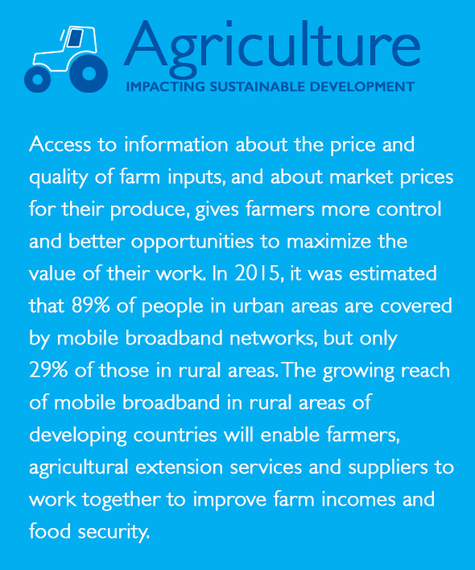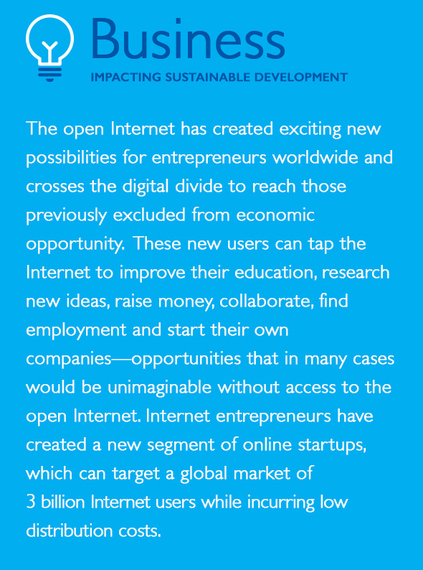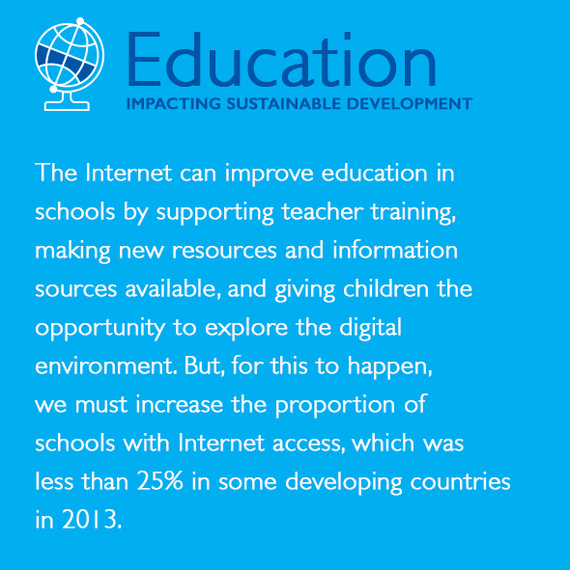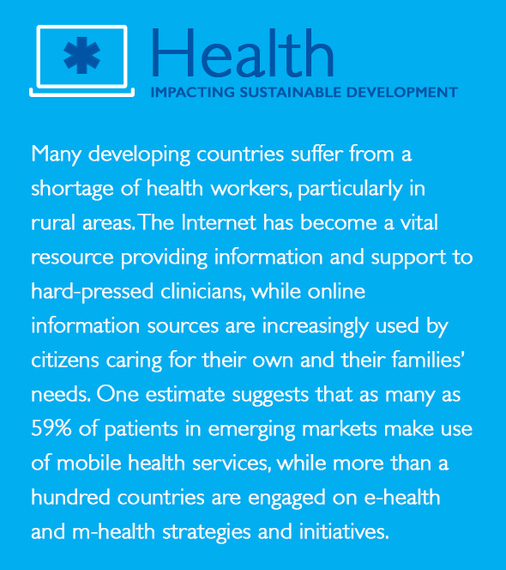The greatest challenge facing the world today is the need to achieve sustainable development--development that will bring economic and social progress to all without harming the future of our planet. This week in Brazil at the 10th Internet Governance Forum meeting, the Internet Society is calling on the global Internet community to act now to unlock the Internet's full potential as the defining force in shaping the world for the next generation and beyond.
In September, the United Nations hosted an important summit on the Sustainable Development Goals (SDGs) where the international community embraced a global 2030 Agenda to alleviate poverty, expand health and education, and preserve our planet for future generations.
The UN's 2030 Agenda recognizes that "...the spread of information and communications technology and global interconnectedness has great potential to accelerate human progress, to bridge the digital divide and to develop knowledge societies."
To help meet its ambitious goals, the Agenda calls upon the international community to "increase access to information and communications technology and strive to provide universal and affordable access to the Internet in least developed countries (LDCs) by 2020." Of course the Internet is not "the answer" to the challenges of poverty, inequality and environmental degradation. But it offers new ways of sharing and analyzing information--new tools for delivering on the SDGs.
Exactly how can the Internet contribute to sustainable development? First, people need access to the Internet. Not just access, but affordable and reliable access to sufficient bandwidth to meet their needs.
At present, between 40% and 45% of the world's people use the Internet at least occasionally, but the figure is much lower--less than 10%--in the LDCs. Access to broadband is far less extensive in developing countries, and especially in LDCs, than it is in developed countries, while the cost of access is much higher. The digital divide is not just between countries, but also within countries--people who live in rural areas are less likely to have access, or be able to afford it, than those in urban areas. These digital divides need to be overcome if we are to maximize the Internet's value for development.
Access is, of course, necessary as a first step, and it requires investment in infrastructure, led by the private sector. But it also requires cooperation to make the most of whatever infrastructure is available. One important way in which that can be done is by establishing Internet Exchange Points (IXPs), which allow the exchange of Internet traffic within each country--cutting costs and improving quality of service.
In addition to access, creation of relevant local online content in developing countries is an important driver for the adoption and growth of the Internet. Users need content that meets local needs, and is available in languages that are used within communities. Relevant content can include government services and commercial content, as well as content generated by family, friends, neighbors, and other users that preserves and helps share local, oral traditions.
Research by the Internet Society and others has shown that there are powerful links between the development of local content, affordable access and the development of the Internet ecosystem in developing countries. Governments, Internet businesses, and development stakeholders should work together to stimulate the emergence of local Internet ecosystems that offer people new ways of accessing the information and services they need.
How effectively people can make use of the Internet depends, too, on their own readiness. Lack of literacy, like lack of familiarity with global languages, means that the benefits of the Internet are more available to the better-off and better-educated. If the Internet is to benefit all and to reduce inequality, two things are crucial: more needs to be done to build people's skills, and more needs to be done to offer devices and platforms that are accessible to those with fewer skills. This is a real challenge where stakeholders need to work together.
Another important element in all this is trust. Internet users need to feel confident that the information they access is reliable and that their use of the Internet will not be used to harm them. Internet stakeholders need to work together to build that confidence, for example, by supporting the development of trusted information platforms and securing users' personal data.
Lastly, cooperation between stakeholders will be crucial in formulating strategies and programs that bring together development priorities and the full potential of the Internet. The challenges of sustainable development are complex. The Internet has great potential to support achievement of the SDGs and improve the quality of people's lives. That potential will grow as the scope and reach of the Internet continues to grow. The Internet Society and the Internet community are committed to working with development stakeholders to fulfill that potential.



